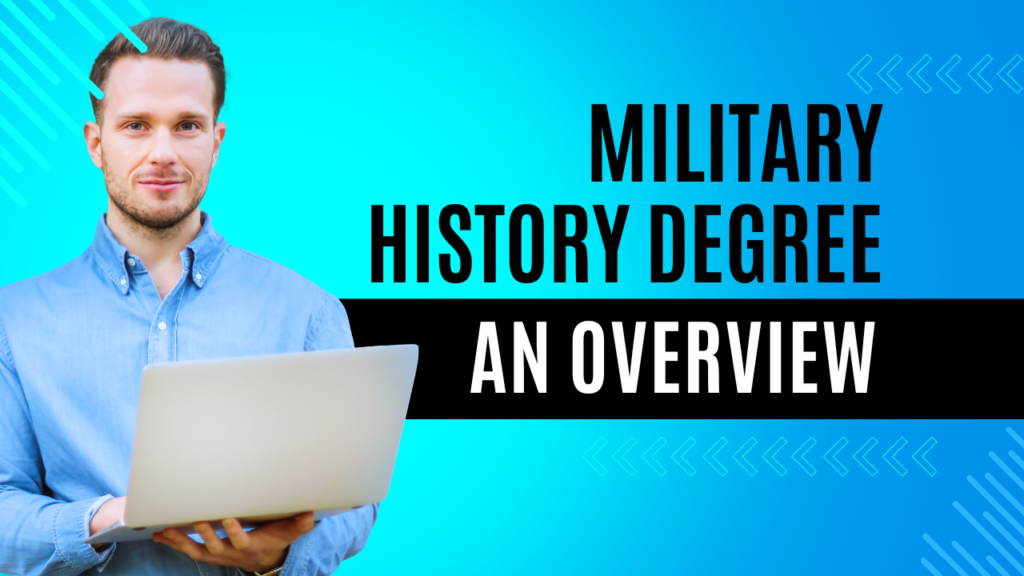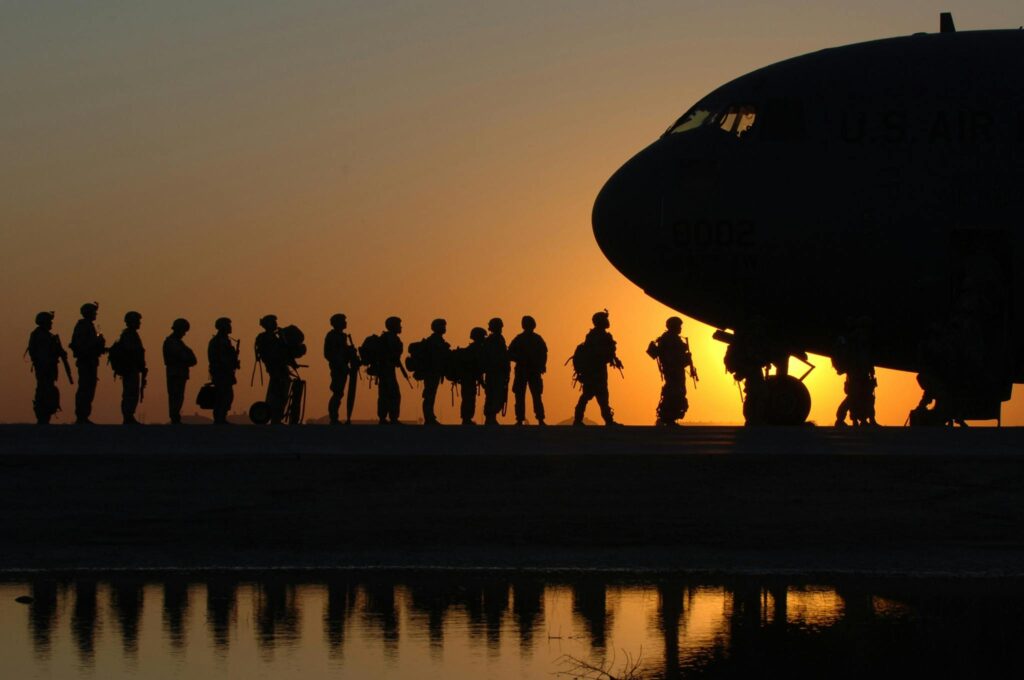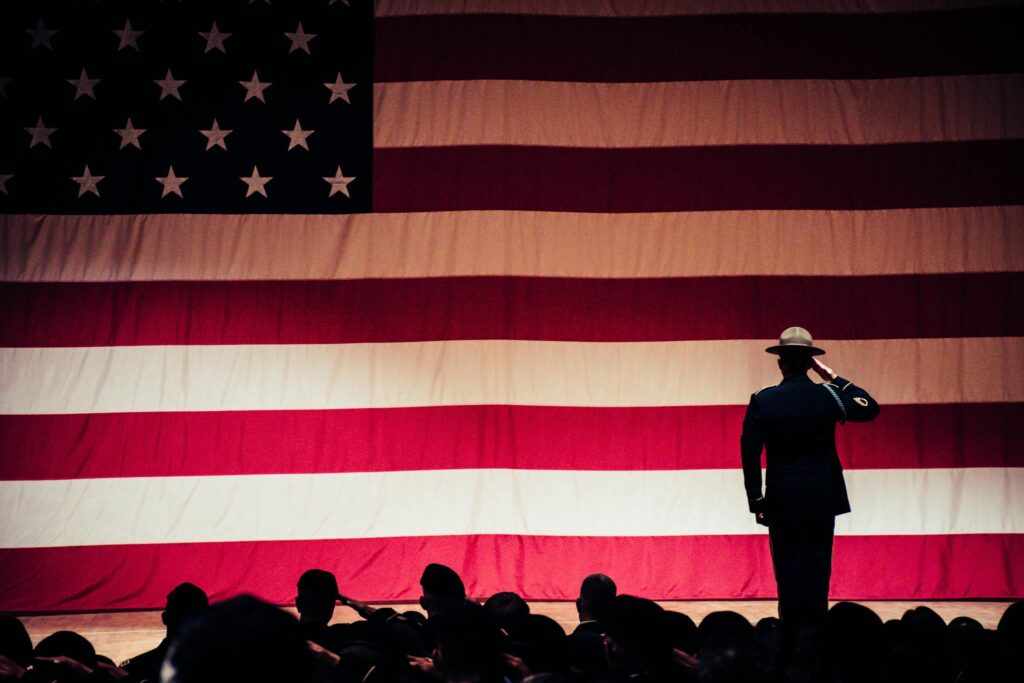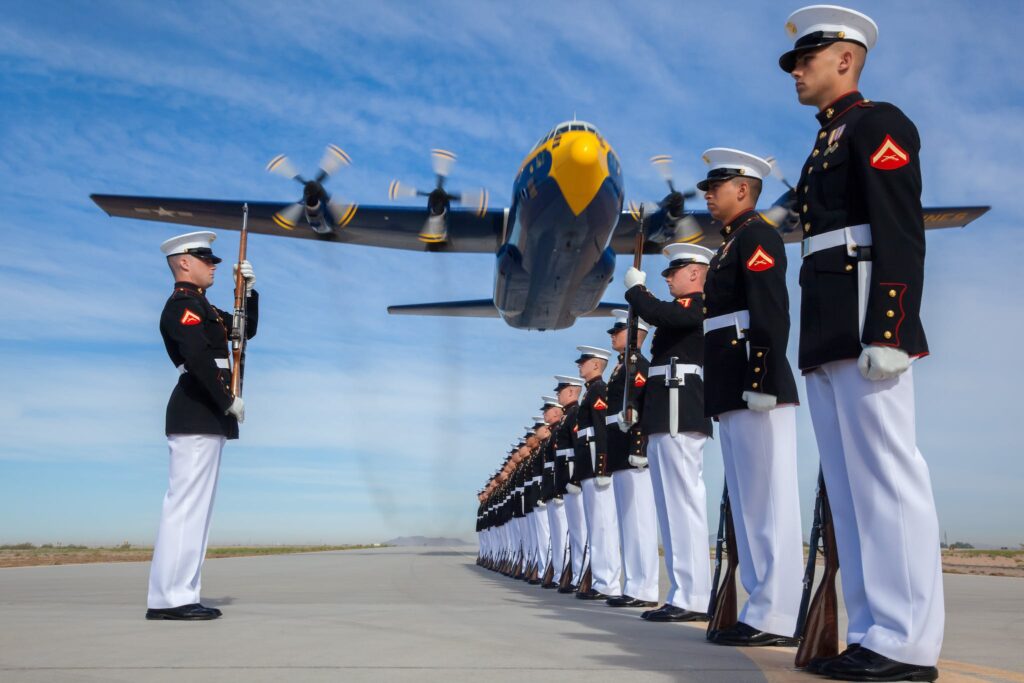What is a Military History Degree? Here’s What You Need to Know
Have you ever wondered what it would be like to study the epic battles and strategies that shaped the course of human history? A military history degree allows you to do just that.
This fascinating field provides an in-depth exploration of military affairs across different eras, regions, and cultures. From the tactics of ancient Greece and Rome to the technologies that defined World War II, a military history education covers a wide range of topics.
If you’re passionate about learning more about the wars, warriors, and weapons that influenced the world as we know it, a military history degree could be an excellent choice. But what exactly does this degree cover? And what kinds of careers can you pursue with it? Read on to find out.
What is a Military History Degree?

A military history degree is a history degree program that focuses on the history of military affairs. These programs examine armed conflicts, advancements in military technology, influential leaders, and more.
Military history degrees are available at the associate, bachelor’s, master’s, and doctoral levels. The specific curriculum varies between schools but often includes courses like:
- Military History Seminar
- Weapons and Warfare
- Strategy and Tactics
- Leadership in Battle
Students also take more general history classes that provide important context on the cultures, politics, and events surrounding major wars. This helps provide a well-rounded understanding of how military conflicts fit into the broader historical narrative.
In addition to traditional coursework, military history programs may offer opportunities to participate in immersive reenactments, interact with artifacts at on-campus museums, and travel to historic battle sites. These kinds of hands-on experiences allow students to deepen their knowledge through firsthand observation.
Does reliving famous battles or analyzing iconic military leaders pique your interest? Here’s an overview of the military history degrees available at different levels.

Types of Military History Degree
Military history is a flexible field of study offered at both the undergraduate and graduate level. Here are some of the most common military history degree options:
Associate in Military History
An Associate of Arts (AA) or Associate of Science (AS) in Military History serves as an entry-level credential for those interested in the field. These 2-year programs provide a survey of major wars, battles, and military figures throughout history. They combine introductory military history courses with general education requirements.
An associate degree in military history is a great way to dip your toes in the field before committing to a lengthier bachelor’s program. Thesefoundational studies can also strengthen your candidacy when applying for a four-year military history degree.
Bachelor’s in Military History
A Bachelor of Arts (BA) in Military History is the standard undergraduate degree for aspiring historians focused on military affairs. This 4-year program builds on the fundamentals covered in an associate program but explores topics in greater depth and breadth.
In a military history bachelor’s program, you’ll take advanced courses on specific wars, analyze primary source documents, and sharpen your research skills. Students also have opportunities to participate in reenactments, study artifacts, and visit battleground sites.
These immersive experiences combined with rigorous scholarship prepare graduates for careers analyzing military operations or conducting original research. A bachelor’s degree also opens the door to postgraduate study in military history.
Master’s in Military History
After completing an undergraduate degree, students can pursue specialty training at the master’s level. A Master of Arts (MA) in Military History lets you drill deeper into eras, topics, or methodologies that match your interests.
These programs require 1-2 years of full-time study and can concentrate on areas like:
- Classical & Medieval Warfare
- Naval History
- Air Power Theory
- Cold War Politics
Master’s students take advanced seminars, write extensive research papers, and may complete internships at museums, archives, or historical sites. Graduates gain skills for conducting independent historical research or teaching at the collegiate level.
PhD in Military History
A Doctor of Philosophy (PhD) represents the terminal academic degree in military history. Earning a PhD requires 4-6 years of intensive, original research resulting in a dissertation that advances knowledge in the field.
Doctoral candidates choose a specific research focus such as battlefield tactics, Warrior culture, or the psychological impact of conflict. Coursework, qualifying exams, field work, and a dissertation defense are all key components.
The lengthy, highly specialized training involved equips graduates for professions as military historians, researchers, professors, authors, policy advisors, and more. Teaching roles in academia are common career paths with a PhD in Military History.
Now that you understand the various degree options let’s look at some of the specific military branches students examine in these programs.

6 Military Branches You Can Study
From ancient swordsmanship to modern drone warfare, military history encompasses an incredibly diverse array of topics. Here are just some of the military branches and topics you might explore through a military history degree:
1. Classical & Medieval Warfare
Go back to the origins of organized warfare in courses focusing on prominent armies from ancient history through the Middle Ages. You could study military leaders like Alexander the Great, Hannibal, and Spartacus or medieval battles between Vikings, Normans, and Anglo-Saxons. Understanding early military strategy provides context for how today’s armies formed.
2. Naval History
For those drawn to stories of high seas adventure, naval history courses cover key maritime battles and explore how sea power influenced the outcome of wars. By charting the evolution of warship technology from sails and cannons to modern submarines and aircraft carriers, these classes explain how competing nations wrestled for their share of nautical might.
3. Air Power Theory
Aviation opened up entirely new frontiers for waging war in the 20th century. Classes examine the development of aerial combat tactics, notable pilots and dogfights, the impact of radar and missiles, and the role of air superiority in major conflicts. There’s no better way to comprehend modern air power than by studying its historical origins.
4. American Civil War
Fought from 1861 to 1865, this iconic conflict lingers large in the American imagination. Courses explore critical aspects like how industrialization affected combat capabilities, the military brilliance displayed by leaders on both sides, Constitutional issues surrounding secession, and how the war brought about the end of slavery.
5. World Wars I & II
The two world wars of the 20th century fundamentally reshaped global politics and warfare. By studying their origins, major battles, technological innovations, and human costs, students gain insight into how they still reverberate today. From the trenches of WWI to Hitler’s blitzkrieg, few events display military history on such an immense scale.
6. Cold War Politics
The Cold War period following WWII was defined by rising tensions between superpowers that never engaged in direct combat. Courses illuminate the post-war dynamics between the U.S., Soviet Union, and China as they competed for geopolitical dominance. Students will especially focus on the nuclear strategies, proxy conflicts, and espionage that characterized this tense era.
These are just a few examples of the topics covered in a comprehensive military history education. Programs allow you to follow your interests across different time periods, geographies, and types of warfare. But how can you fit this specialized field of study into your life and schedule?

Degree in Military History Online
Pursuing an online military history degree can be a flexible option whether you’re just starting your higher education or are already in the workforce. Here are some of the benefits:
Accessibility
Online programs allow you to complete coursework wherever you have a reliable internet connection. There’s no need to relocate or commute to campus. This makes an online military history degree accessible even for active-duty military members deployed abroad.
Affordability
Online degrees tend to offer lower tuition rates compared to traditional schools. The ability to learn remotely also saves on costs like housing, transportation, and supplies. More affordable education means less student loan debt.
Flexibility
With no fixed class times, online students can complete assignments and view lectures whenever is most convenient for their schedule. This flexibility is ideal if you plan to balance school with a job or family responsibilities.
Customization
A wider pool of online programs allows you to find specialized degree options aligned with your interests. Narrow your search to schools offering online classes in ancient warfare, nautical battles, aviation history, or another specialty.
Just be sure any online programs you consider are accredited and taught by qualified faculty. This ensures you’ll graduate with legitimate credentials. Reaching out to current and former students can also provide helpful insight into a program.
An online military degree makes attaining this specialized education possible for virtually any schedule, budget, and location. But before applying, it’s important weigh both the benefits and drawbacks.
Military History Degree Career Paths
Pursuing a military history degree can prepare you for several rewarding and unique career paths. Here are a few options with typical salaries:
Historian
Historians research, analyze, and interpret the past. Those with a military history background may work as experts at historical sites, museums, nonprofit organizations, or in specialized research roles. The median salary for historians is $63,000.
Archivist
Archivists organize, catalog, and preserve important records and artifacts. Those trained in military history are equipped to maintain collections at military museums, battlefields, presidential libraries, etc. The average archivist earns around $52,000 per year.
Professor
With a PhD, military historians are qualified to teach at colleges and universities. Professors develop curriculum, lecture on military history topics, and mentor students. The median salary for postsecondary history professors is $79,000.
Military Analyst
Government agencies and think tanks employ military analysts to study defense strategies, assess threats, and advise leaders. Analysts typically have advanced military history degrees and earn approximately $95,000.
Author
Publishing books on military history can be an engaging career for knowledgeable writers and researchers. While competitive, successful authors can earn $55,000 or more in book royalties and advances.
Curator
Curators at military museums choose artifacts and exhibits to interest visitors and accurately portray history. Curation roles align well with a military history background. The average salary for curators is around $59,000.

Are Military History Degrees Worth It?
As a niche field of study, a military history degree takes commitment and focus. But for those with a true passion for the subject, the personal and professional payoffs can be immense. Consider the key pros and cons:
Pros
- Build expertise in war, politics, geography, cultures, and more through history’s lens
- Gain valuable research, analysis, and communication skills
- Work or volunteer at historical sites, museums, archives, and non-profits
- Potential to teach history or military science at high schools or universities
- Pursue a graduate degree to become a published historian, professor, analyst, or museum curator
Cons
- Can require moving for access to specialized archives or resources
- Most roles require an advanced degree like a master’s or PhD
- Research and academic career paths involve long timelines and highly competitive hiring
- Military curriculum emphasizes past wars rather than the causes of peace
Overall, a degree in military history opens the door to rewarding and unique careers. But like any specialized discipline, you should have a strong innate interest in the field to get the most value from your education.
If learning about human conflict, power dynamics, and the forces that shaped civilization sounds appealing, then investing in a military history degree could be well worth it. This fascinating and dramatic slice of the past illuminates just as much about humanity in the present day.
Frequently Asked Questions About a Military History Degree
Is there a degree for war history?
Yes, military history degrees specifically focus on studying the history of war and military institutions. Programs examine major conflicts, battles, wartime strategy, and the impacts of war across history. Students gain analytical skills useful for military, government, policy, and defense careers. Military history degrees are offered at associate, bachelor’s, master’s and doctoral levels.
What do military historians study?
Military historians analyze the causes, conduct, and impacts of wars and other armed conflicts throughout history. Their study encompasses military culture, technology, institutions, strategy, leadership, and the experience of soldiers and civilians during wartime. Military historians examine the intricate relationship between warfare and society.
Is there a PhD in military history?
Yes, students interested in an academic career teaching military history at the university level or conducting advanced research can pursue a Doctor of Philosophy (PhD) in Military History. PhD programs allow for deep specialization through research and writing a dissertation that advances the field.
What is the purpose of a military history degree?
A military history degree develops valuable analytical abilities while providing an in-depth understanding of military affairs and strategy. This equips students for careers in defense, policymaking, diplomacy, intelligence, government service, academics, and more. Military history provides insight into managing future conflicts.
Is military history a degree or a major?
Military history is most often offered as a concentration within a broader history degree program at both the undergraduate and graduate level. However, some universities do offer military history as a standalone bachelor’s or master’s degree program. Students can also earn an associate degree focused specifically on military history.
